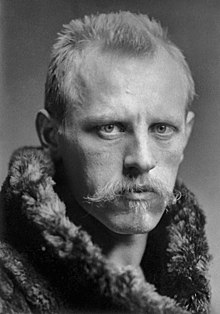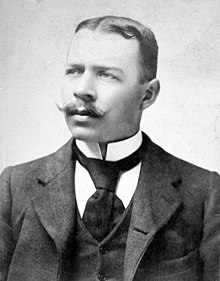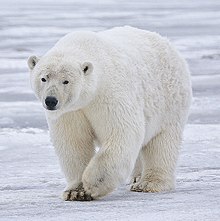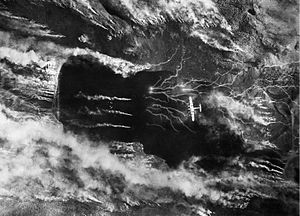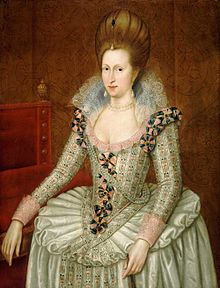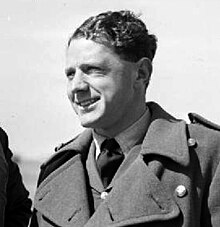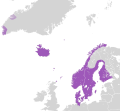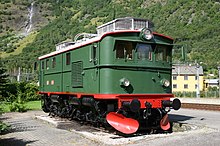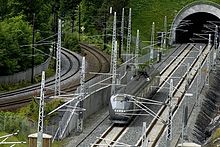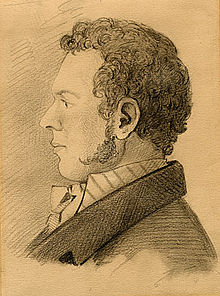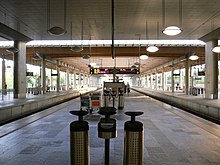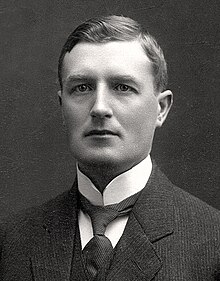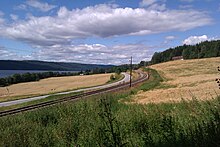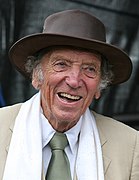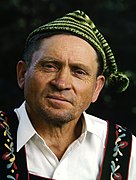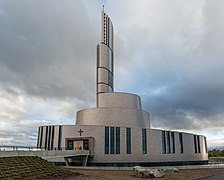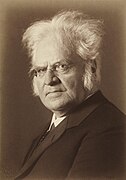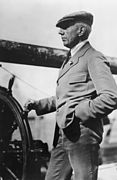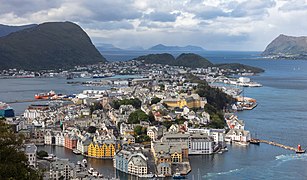Portal:Norway
The Norway Portal
Norge Portal

|

|

| |
Norway (Bokmål: Norge, Nynorsk: Noreg), formally the Kingdom of Norway, is a Nordic country in Northern Europe, situated on the Scandinavian Peninsula. The remote Arctic island of Jan Mayen and the archipelago of Svalbard also form part of Norway. Bouvet Island, located in the Subantarctic, is a dependency; Norway also claims the Antarctic territories of Peter I Island and Queen Maud Land. The capital and largest city in Norway is Oslo.
Norway has a total area of 385,207 square kilometres (148,729 sq mi) and had a population of 5,488,984 in January 2023. The country shares a long eastern border with Sweden. It is bordered by Finland and Russia to the northeast and the Skagerrak strait to the south. Norway has an extensive coastline facing the North Atlantic Ocean and the Barents Sea. Harald V of the House of Glücksburg is the current King of Norway. Jonas Gahr Støre has been Prime Minister of Norway since 2021. As a unitary state with a constitutional monarchy, Norway divides state power between the parliament, the cabinet, and the supreme court, as determined by the 1814 constitution. The unified kingdom of Norway was established in 872 as a merger of petty kingdoms and has existed continuously for 1,151–1,152 years. From 1537 to 1814, Norway was part of Denmark–Norway, and, from 1814 to 1905, it was in a personal union with Sweden. Norway was neutral during the First World War, and in the Second World War until April 1940 when it was invaded and occupied by Nazi Germany until the end of the war.
Norway maintains the Nordic welfare model with universal health care and a comprehensive social security system, and its values are rooted in egalitarian ideals. The Norwegian state has large ownership positions in key industrial sectors, having extensive reserves of petroleum, natural gas, minerals, lumber, seafood, and fresh water. The petroleum industry accounts for around a quarter of the country's gross domestic product (GDP). On a per-capita basis, Norway is the world's largest producer of oil and natural gas outside of the Middle East. The country has the fourth- and eighth-highest per-capita income in the world on the World Bank's and IMF's list, respectively. It has the world's largest sovereign wealth fund, with a value of US$1.3 trillion. (Full article...)
Selected article –
Selected picture –

In this month
- The Union Dissolution Day, observed in Norway on 7 June (though not a public holiday), is marked in remembrance of the Norwegian parliament's 1905 declaration of dissolution (pictured) of the union with Sweden, a personal union which had existed since 1814.
- Oscar Fredrik Torp (8 June 1893 – 1 May 1958) was Prime Minister of Norway 1951 to 1955, and chairman of the Labour party (Det Norske Arbeiderparti) from 1923-1945.
General images –
Selected biography –
Did you know –
- ...that the rococo manor house (pictured) at Damsgård, near Bergen, Norway, is one of the best preserved wooden 18th century structures in Europe?
- ...that the Norwegian heavy water sabotage was a key part of Allied efforts to prevent Nazi Germany from developing nuclear weapons?
- ...that the lowest ranks in the Norwegian military are the menig (Army), flysoldat (Air Force) and Utskrevet menig (Navy)?
Selected quote –
Categories
Selected panorama
Bryggen (Norwegian for the Wharf), also known as Tyskebryggen (the German Wharf) is a series of Hanseatic commercial buildings lining the eastern side of the fjord coming into Bergen, Norway. Bryggen is on the UNESCO list for World Cultural Heritage sites. The name has the same origin as the Flemish city of Bruges. (Full article...)
Main topics
Counties: • Agder • Innlandet • Møre og Romsdal • Nordland • Oslo • Rogaland • Troms og Finnmark • Trøndelag • Vestfold og Telemark • Vestland • Viken (county)
Culture: Bunad
• Constitution Day
• Cuisine
• Farm culture
• Jul
• Literature
• Music
• Cinema
History: Ancient Norwegian property laws • Nordic Stone Age • Nordic Bronze Age • Komsa • Fosna-Hensbacka culture • Funnelbeaker culture • Hamburg culture • Nøstvet and Lihult cultures • Maglemosian culture • Viking Age • Harald I of Norway • Olav IV of Norway • Haakon I of Norway • Olaf I of Norway • Olaf II of Norway • Battle of Stiklestad • Canute the Great • Magnus I of Norway • Harald III of Norway • Battle of Stamford Bridge • Magnus III of Norway • Sigurd I of Norway • Magnus V of Norway • Sverre of Norway • Haakon IV of Norway • Magnus VI of Norway • Eric II of Norway • Kalmar Union • Denmark–Norway • Union between Sweden and Norway • Dissolution of the union between Norway and Sweden in 1905 • Haakon VII of Norway • Olav V of Norway • Harald V of Norway • Occupation of Norway by Nazi Germany • Norwegian Campaign • Norwegian resistance movement • Legal purge in Norway after World War II • Foreign relations of Norway • Military of Norway • Norway and the European Union
Language: Å • Æ • Ø • Bokmål • Det Norske Akademi for Sprog og Litteratur • Differences between Norwegian Bokmål and Standard Danish • Høgnorsk • Nordic Council • Nordic Language Convention • Noregs Mållag • Norsk Ordbok • North Germanic languages • Norwegian alphabet • Norwegian dialects • Norwegian Language Council • Norwegian language conflict • Norwegian phonology • Nynorsk • Old Norse • Riksmålsforbundet • Russenorsk
Politics: Constitution • Counties (Fylker) • Elections • European Union relations • Foreign relations • Government • Monarchy • Municipalities (Kommuner) • Political parties • Prime Minister • Norwegian nationalism • Romantic nationalism • Sámi Parliament • Storting
Featured and Good content
Related portals
Northern Europe
Other countries
WikiProjects
- Parent projects
WikiProject Countries • WikiProject Europe
- Main project
- Similar projects
WikiProject Denmark • WikiProject Finland • WikiProject Iceland • WikiProject Sweden • WikiProject Russia
What are WikiProjects?
Things you can do
- Add {{Portal|Norway}} to existing See also sections of Norway-related articles.
- Tag the talk pages of Norway-related articles with the {{WikiProject Norway}} banner.
- Rate the Unassessed Norway articles in the Norway WikiProject.
- Requested articles: Requested Norway-related articles
- Expand stubs: Building and structure stubs, Company stubs, Nordic football club stubs, Geography stubs, History stubs, Musical group stubs, People stubs, All Norway stub articles
- Note: For additional tasks, see - Wikipedia talk:WikiProject Norway/to do
Associated Wikimedia
The following Wikimedia Foundation sister projects provide more on this subject:
-
Commons
Free media repository -
Wikibooks
Free textbooks and manuals -
Wikidata
Free knowledge base -
Wikinews
Free-content news -
Wikiquote
Collection of quotations -
Wikisource
Free-content library -
Wikiversity
Free learning tools -
Wikivoyage
Free travel guide -
Wiktionary
Dictionary and thesaurus







